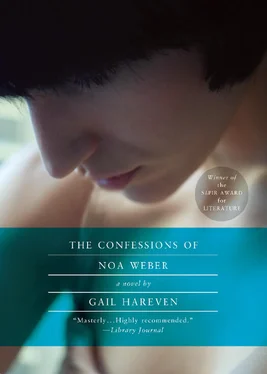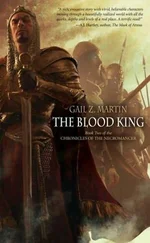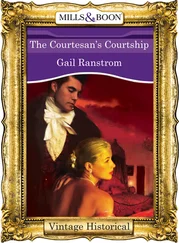On the stock exchange of Usha Street it was a story worth its weight in gold, not just another anecdote, but a full blown production, and in days to come I capitalized on it shamelessly, blunting the embarrassment and guilt with a mockery that improved with practice. Think of this woman, that is to say my mother, Batya, with her socialist upbringing in the children’s house on the kibbutz. Her parents turned their backs on their bourgeois families, Grandpa left the shtetl, Grandma ran away from the family home in Kraków, they cleared away rocks, sweated in the fields, burned with malarial fevers, and all for what? For the revolution, right? To create a new man for us here who would live in a new, just society. There was an article about it in the paper only last week, I don’t know if you saw it. A new man, a new family, a new form of relationship — that’s what they wanted and that’s what they talked about. And what did we get instead? Fiddler on the Roof , back to the shtetl with violins, mazal tov, comrades, mazal tov, our little girl’s getting married and grandchildren come next.
“Don’t start jumping for joy. It’s only a fictitious marriage,” I said quickly.
“Fictitious?” the knife was still in her hand. “But what does that mean, fictitious?”
“It means that I’m getting married at the Rabbinate the day after tomorrow, and later on I’ll get divorced. Not that marriage means anything to me in the first place, it’s just a primitive custom, but in any case this marriage isn’t for real.”
“Really? Is that so? One of the boys from the kibbutz married an illegal immigrant from Europe in a fictitious marriage, and afterwards they got divorced. But since then, as far as I know, we managed to chase the British out of the country.”
“I don’t intend to go to the army.”
At some point she asked me if “he”—she never called Alek by his name — if “he” was “giving me drugs.” At another point she bemoaned “what would people say” and how she was going to tell my father. And when, on the verge of a childish hysteria I hadn’t planned for at all, I denounced her, my father, Zionism, the army of occupation, and the oppression of the Palestinians — she ordered Talush to leave the room so that I wouldn’t “influence” her. “We know very well who’s influencing you,” she said.
With the Beatles’s “She’s Leaving Home” in the background, with frames from Five Easy Pieces and refrains from the Israeli version of Hair in my head, the two of us played our roles in this little historical melodrama with facility and total identification. Only I wasn’t leaving home to go to San Francisco with a flower in my hair, but because I wanted to get married. To get married to a man I would rather have died than told my mother how much I loved him.
The truth is that it wasn’t at all clear to me that I was leaving home, until my mother finally came out with the inevitable lines: “If that’s what you think of us, if that’s what your espresso generation is like, then perhaps there really isn’t anything for you and your generation to look for here. And if you’re old enough to get married, then perhaps you’re old enough to earn your living as well,” at which point I went up to my room, threw a few clothes into my rucksack, threw a nasty “I’m sorry for you,” at the alarmed Talush, and left the house.
How much sincerity was there in this stormy scene? I don’t know. It’s possible to play a part with feelings of absolute sincerity, and when I arrived at Alek’s with tears pouring down my face I had no sense of theatrical exaggeration. In other words, I was sure that the rift with my family was final and absolute.
“What happened?” he asked at the door, and immediately took me into his arms, which immediately brought on a fresh bout of weeping. “What happened?”
“I can’t do it,” I groaned when he closed the door behind us.
“What can’t you do?”
“Get out of the army. My mother, my parents, if I don’t go to the army they’ll throw me out of the house, and at the moment I’ll simply have nowhere else to go.” We were still standing in the hallway, and Alek stroked my head with concentrated gentleness. “All my girlfriends are going to the army and I don’t want to go to my Granny Dora on the kibbutz.”
“Noichka, Noichka … yes …”
I buried my head in his shirt, and with my head under his chin I felt the smile suddenly spreading over his face. A slow Alek smile with closed lips. “You don’t want to be in army?”
I shook my head.
“Okay, then you won’t,” and he raised my face to his. “Your mother and father … those are rules of the genre, you know,” he said holding my cheeks and pulling them into a smile, “that’s the way it is, Noichka, everything conforms to the rules of the genre.” And when he took his hands away the smile remained on my face. When he wanted to he could always effect this change in me, from total identification with my feelings, to a kind of light-hearted, mischievous observation of myself.
“You don’t want to be drafted?” he asked again.
“No,” I answered, this time out loud.
“And you want me to marry you?” My face was completely exposed. I knew what he could see in it, I knew what he was asking, I could deceive the whole world, but not him, and I didn’t want to deceive him anyway.
“Yes, I want you to do it.”
“Good, if that’s what you want, then that’s what I’ll do. I gave you a key, have you got the key? I want you to use it always. Will you use it? I’m leaving the country in July, and then too … you can stay here as long as you need to.”
How easily female tears turn into sexual arousal, not only of the male comforter but also of the weeping woman. The woman’s panties were already pulled down, one melting was turning into another, and Ravel’s Bolero was beginning to swell in the background when the man said: “And you’ll manage, and you’ll be all right, because that’s how it is in your story. Everything according to rules of the genre, right?”
ON THE MORNING OF MY WEDDING
On the morning of my wedding I went to the Old City and bought a white dress. I didn’t think that I was buying a wedding dress, but suddenly, as if for no reason, I just coveted a white galabiyeh flapping on a hanger in an alleyway, and it was only afterwards that it occurred to me to wear it to the Rabbinate.
“They expect a white dress,” I said meekly to Alek who examined me in silence before we left the house. “If they don’t like the way we’re dressed they might throw us out, and we’ll have wasted our time for nothing.”
With the dress in my hand I strolled in the direction of the church of the Holy Sepulchre, simply because this was one of the places I went with Alek.
I’ve already mentioned that he loved churches, they acted on his soul, and when I stood in the church at his side, I understood that his admiration wasn’t only aesthetic. “That’s a nice picture,” I let slip once in one of the alcoves opposite the sooty face of the Virgin Mary. “I like it.”
“It’s horrible icon,” he replied impatiently from the side, “most of the paintings here are horrible.”
“You think so?”
“It’s not a question of what I think. They’re simply horrible, but it really doesn’t matter. Church isn’t a museum. And from religious point of view maybe bad art is preferable.”
Sometimes he would hurry through the halls — in Gethsemane, in the Dormition, in the Holy Sepulchre, there were two Saturdays when we walked as far as the Church of the Nativity in Bethlehem — and then, “That’s it, let’s go get some coffee.” Other times he would linger in one of the corners, standing erect and somehow obedient, his hands folded in front of him on the zipper of his jeans, not focused on any of the objects around him, and nevertheless somehow very focused indeed. It seemed as if he were capable of standing there for hours without moving a muscle, as if he had been trained to wait in silence, and the sight made my heart contract. I tried to impose a similar stillness on my own body, I tried not to shift my weight from foot to foot, to relax my shoulders, to relax my hands, as if by succeeding in doing so, I would know what was happening inside him. It seemed to me that if only I emptied my mind and cleaned out my body, Alek’s thoughts would seep by some magical osmosis into the void formed inside me, where they would take shape as the picture, the memory, the ancient experience that he was seeking. Because for some reason it seemed to me that he was searching for something inside him, not actively but the opposite; that he was stilling his thoughts and making room for something to rise up inside him, as if he were trying to call it up and waiting for it to come.
Читать дальше












